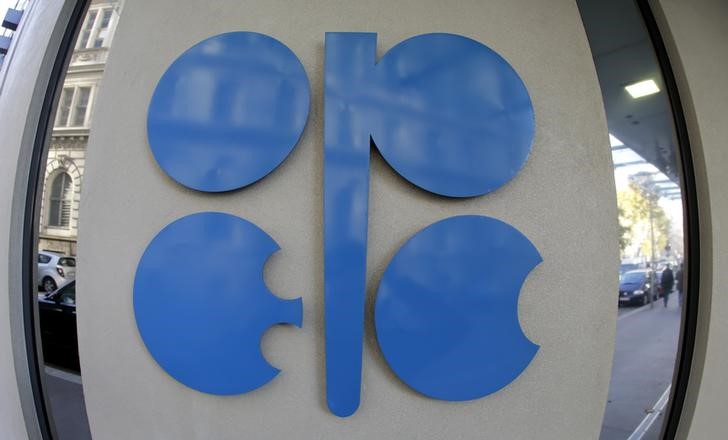By Geoffrey Smith
Investing.com -- The world's largest oil exporters agreed to a token increase in crude production from September, unable and unwilling to compensate for the tightening of the world market by western sanctions on Russia.
The Organization of Petroleum Exporting Countries agreed at a regular meeting to raise their output quotas by 100,000 barrels a day from September, a move that would notionally put them above where they were before the pandemic struck. However, analysts were quick to point out that the majority of OPEC members are unable to raise output in the short term, meaning that the actual increase will be much smaller - probably less than 50,000 b/d.
"The severely limited availability of excess capacity necessitates utilizing it with great caution in response to severe supply disruptions," OPEC said in a statement after its Joint Ministerial Monitoring Committee meeting.
The outcome of the meeting will be a disappointment to the Biden administration, especially after President Joe Biden himself traveled to Saudi Arabia last month to press for an increase big enough to neutralize high gasoline prices as an issue in November, when the U.S. will hold mid-term elections. It also dashed hopes for more accommodation by the Desert Kingdom after the U.S. agreed to the sale of defensive missile systems to Saudi Arabia and the United Arab Emirates earlier this week.
While OPEC didn't name them, the greatest of the disruptions to supply that it highlighted remain the U.S. and European sanctions on Russia, which caused a sharp drop in output at the world's second-biggest exporter in the spring. While they have rebounded since then, Russia's latest production data suggest that the improvement is slowing down.
OPEC warned that the lack of investment in the sector over recent years is likely to keep the global market tight for the foreseeable future.
"The meeting noted with particular concern that insufficient investment into the upstream sector will impact the availability of adequate supply in a timely manner to meet growing demand beyond 2023," it said.
OPEC has complained for years that the reallocation of investment capital away from oil and gas and toward other forms of energy such as renewables would hamper its ability to keep a growing world market properly supplied. Western oil companies have echoed such concerns, having to fight harder for dollars after a decade of value destruction by the shale industry and the rise of environmentally-themed investing.
"What was years in the making will equally be years in the fixing," said Eric Nuttall, a partner at Ninepoint Energy Fund, via Twitter. Nuttall anticipates a "multi-year bull market" in oil, due to the exhaustion of OPEC's spare capacity, underinvestment by global majors, and the end of rapid U.S. shale growth.
In the short run, however, prices are under pressure from falling demand as the global economy slows. U.S. retail gasoline prices have dropped 17% over the last seven weeks since peaking at over $5 a gallon in June.
